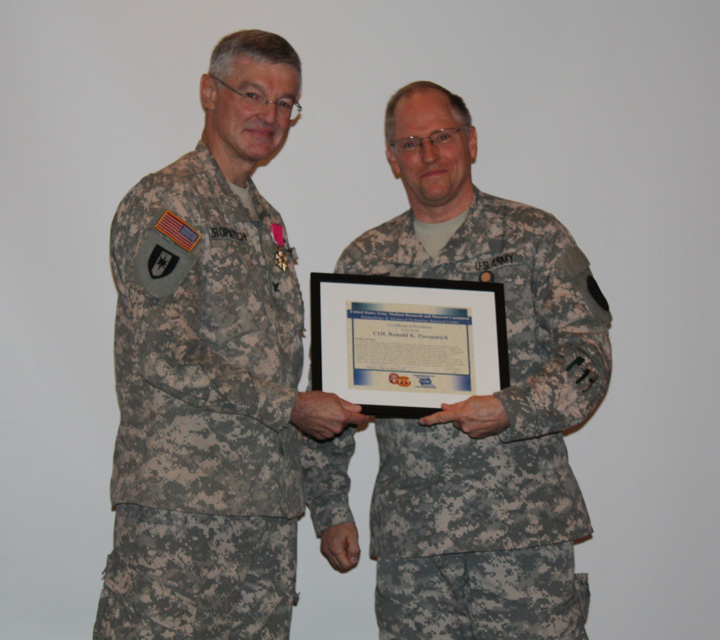TATRC's Deputy Director Retires

Col. Ron K. Poropatich retires after 34 years in the Army.
"Poropatich has demonstrated excellence as an Army officer, a physician, a researcher and technologist, a mentor and leader and, most importantly, as a dedicated father, husband, and son," said Col. Karl Friedl, Telemedicine and Advanced Technology Research Center commander.
In Poropatich's career, he worked toward wide-scale implementation of telehealth applications across the U. S. Army Medical Department and set in motion initiatives that benefit the Soldier today. Telemedicine activities dominated more than 19 years of his distinguished career with a longstanding 17-year association with TATRC.
He was frequently asked by Line & AMEDD leaders to solve problems in Garrison and in the theaters of war using innovative telehealth solutions.
He previously served as the Chair of the NATO Telemedicine Expert Team, as president and Board Member of the American Telemedicine Association, and was a practicing Pulmonary Medicine physician at the Walter Reed Army Medical Center, Washington, D.C.
Poropatich continues to serve as a professor of Medicine at the Uniformed Services University of the Health Sciences in Bethesda and as an associate editor for the Telemedicine and e-Health Journal.
At his retirement ceremony, Poropatich was presented with the Legion of Merit, the Presidential Letter of Appreciation and citation signed by President Barack Obama, the Maryland Governor's Letter of Recognition and citation signed by Governor O'Malley, the 30 year AMEDD Medallion, the 30 year Medical Corps Coin, and numerous letters and coins from General Officers in appreciation for his many contributions.
In his quest to continue his association with the military, Poropatich has accepted a new position at the University of Pittsburgh's newly established Center for Military Medicine Research, Health Sciences where he will serve as the executive director of the Center.
The goal of this Center is to develop new research themes and to promote collaboration among investigators in the Health Sciences and related disciplines which will lead to significant scientific and clinical advances that support the interests of the Department of Defense. Particular research themes envisioned for the Center include concepts and applications of regenerative medicine, reconstructive surgery, transplantation immunology, tissue engineering, and neuroscience especially as it relates to traumatic brain injury, neuro-rehabilitation, and neuroprosthetics.
When he's not working, Poropatich plans to spend time with his family on the Eastern Shore.
 An official website of the United States government
An official website of the United States government
 ) or https:// means you've safely connected to the .mil website. Share sensitive information only on official, secure websites.
) or https:// means you've safely connected to the .mil website. Share sensitive information only on official, secure websites.


